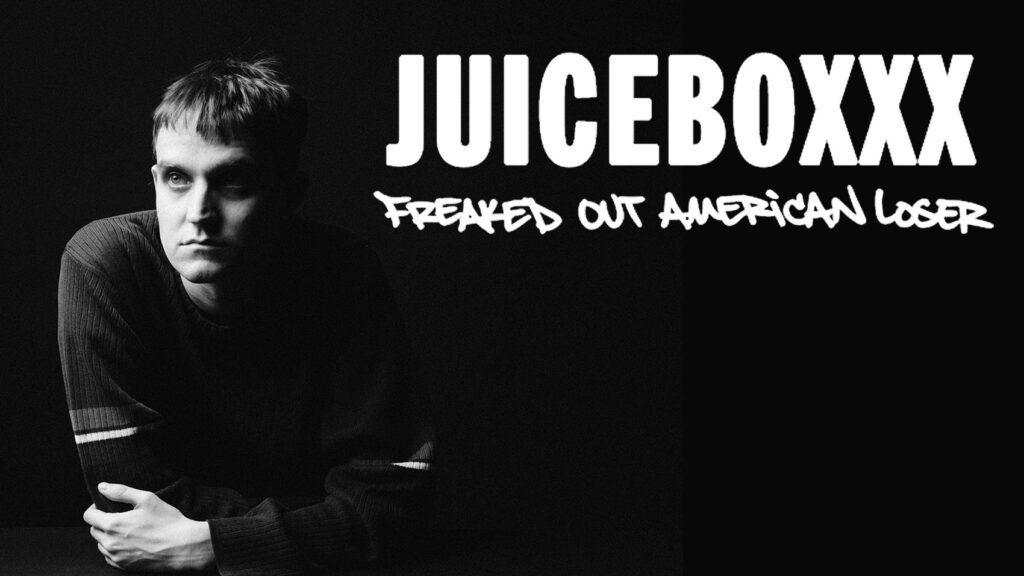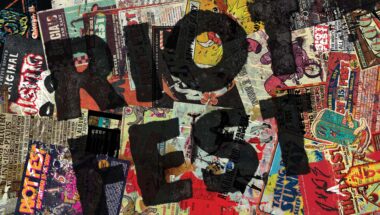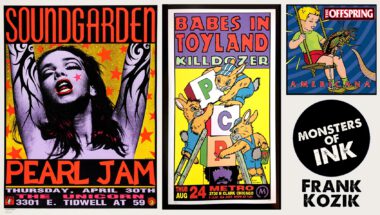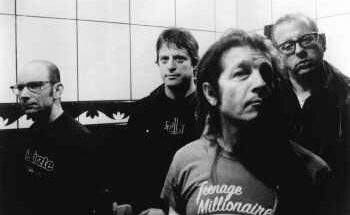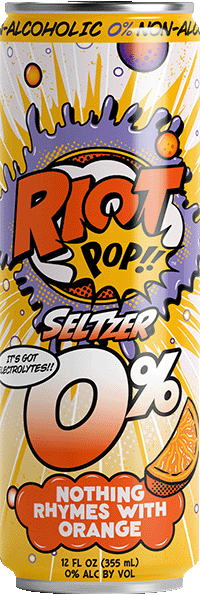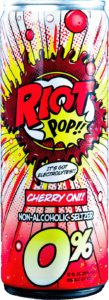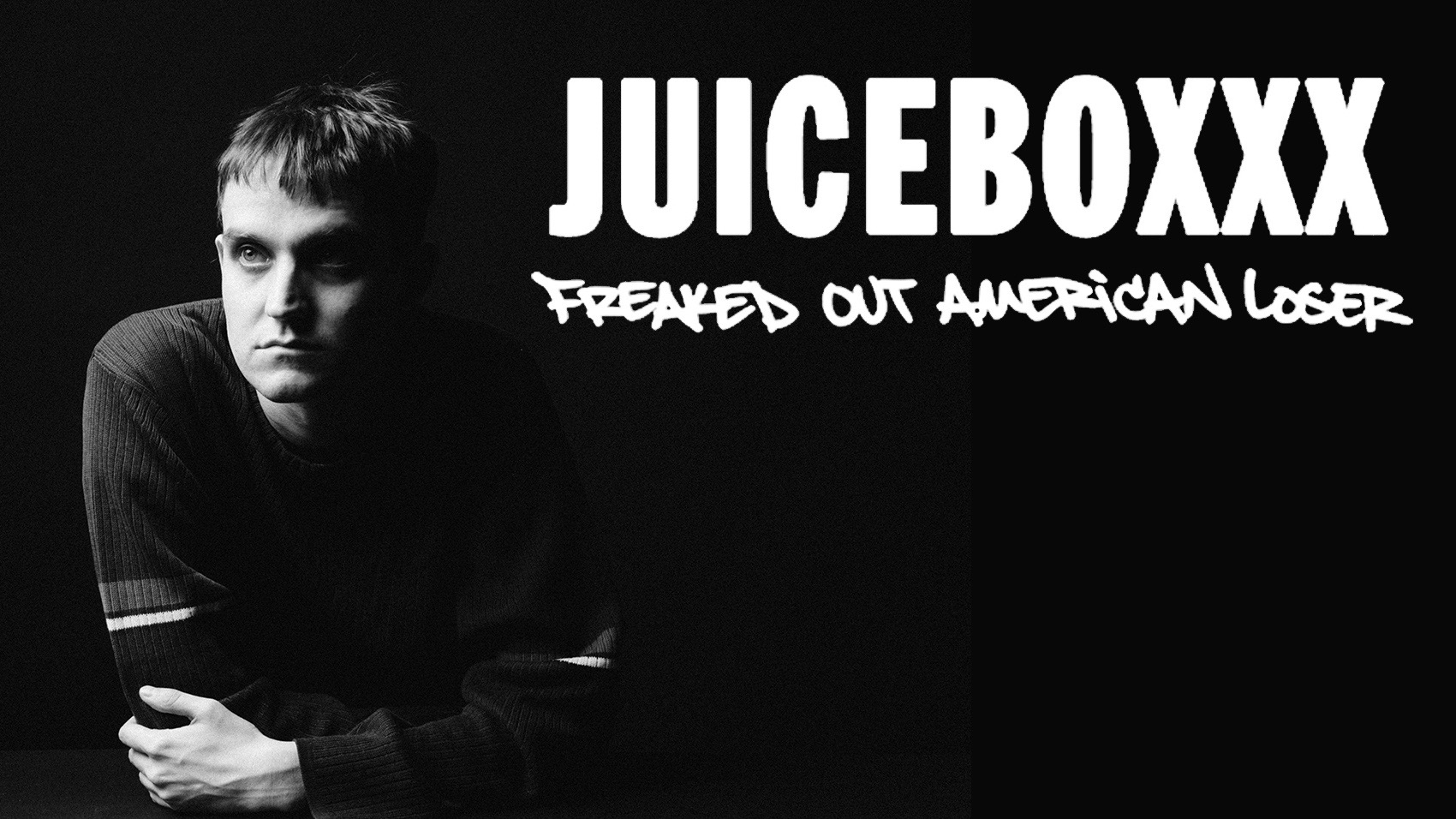
The first time I saw Juiceboxxx perform a little over a decade ago, he was a teenage kid in Milwaukee putting on weird DIY shows in oddball venues like vintage clothing shops. He was only playing to a couple dozen people at a time–partly because there are only so many people you could fit in the places he chose to perform–but he was clearly committed to making those couple dozen people turn the fuck up as much as possible. The kid clearly had more star power than most acts selling out thousand-person rooms.
Since then, JB’s charted an eccentric path for himself as a performer. While many DIYers from the American Apparel era have exercised the power of consistent branding and synergetic marketing strategies, JB has passionately flung himself from one crazy idea to another. Somehow along the way, after releasing his own energy drink and touring with Public Enemy, he’s become the charismatic front man of a posi-vibes punk band with a new record called Freaked Out American Loser and a short documentary of the same name, which we’re extremely psyched to be able to premiere for you.
We caught up with Juiceboxxx on his day off to figure out how it all went down.
RIOT FEST: Let’s talk about this documentary.
JUICEBOXXX: Well, it sort of follows me around at a transitional point in my life. Yet another transitional point in the long, confusing life of Juiceboxxx. I signed a record deal with Dangerbird, which is the first time I’ve put out a record for, you know, a slightly bigger label. I’ve put out my own records and worked with a lot of small labels, but this is the first time I’ve done something on a slightly bigger scale… and it comes like 15-plus years into doing it. It follows me playing some shows around New York and going on tour, and provides a summary of the early beginnings of Juiceboxxx for anybody who doesn’t know… which is probably most people.
Since your DIY days in Milwaukee, you been mostly on your own. What’s it like to make the transition to working with a more, quote-unquote, “serious” label?
It’s been great, honestly. It’s been nice to have resources and people to collaborate with. You know, it’s funny because I’ve had this abstract [vision] in my head for a long time, but I’ve taken probably the most convoluted path towards it imaginable. Anybody who saw me play when I was 18 could probably have seen some of the latent punk rock influences in what I was doing, even when I was playing some house music or rap song. In 2007, I’d get booked to play a dance party or something, but the shows were still quite confrontational.
What I’m trying to say is, even though the sonics and the way I perform music may have been incongruent, I finally think that making records with a band and working with a rock label makes a lot of sense. I’ve been on the periphery of some kind of art-damaged stuff my whole life – and that’ll always be part of what I do – but going forward, I want to make a certain kind of record.
Looking back at the course of your career, two things jump out at me. You’ve always been trying to push yourself into new places, and you’ve also been really willing to bang your head against the wall and try new things… even if they don’t work.
I think for a long time, I was really interested in people like Lil B: Artists who had crazy output and weren’t afraid to try new things. Although my music never completely synced up with contemporary rap sonically, I was influenced by the output level of a lot of those artists.
Also, Guided By Voices. I used to always joke that [I] was like Lil B meets Guided By Voices, you know what I mean?
The live show has gotten to a really strong place. It’s a triumphant live shows. It’s this really unhinged punk thing, but I always try and bring it home in this way that’s more inspired by Springsteen than anything else. I think it’s cool that I have this weird, confusing body of work.
Is it important for you to be as transparent as you’ve been with your creative process?
The way I look at it, if I was more calculated over the years, I could’ve changed my name three or four times, reset my narrative, and made a project that clearly fit into somethng that was happening in contemporary culture; and use that as a springboard into a career. I’ve seen a lot of peers do it, and I totally understand that. But Juiceboxxx is my baggage. You only get one life, so you gotta just keep going… regardless of whatever. Juiceboxxx is my life.
I keep seeing you refer to yourself as a failed rapper or making fun of your own career arc, and I think it’s radical in a way. It seems like there’s a lot of pressure for creative people to stay on-brand and not show their flaws.
It’s complicated. I have serious self-esteem issues and I’m seriously self-deprecating. It’s not positive. I don’t want to romanticize the fact that I hate myself. It’s not a move or a counter-move. In fact, I want to get better at this.
To be honest, I don’t want to say this kind of shit. On a very base level, I’m proud of what I’ve accomplished. That being said, there’s an immense amount of self-doubt. I think there’s something about being honest, but I dunno. Mostly it’s my bullshit that I need to get over.
All this self-deprecation in the middle of a set, that’s not what it’s about. When I’m actually doing the thing, I’m pretty fucking confident.
This ain’t over yet. That’s why I keep making music.
